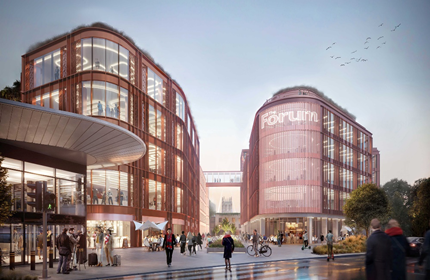Gloucester have demonstrated an action orientated and delivery focused approach to recovery.
Working closely with GFirst LEP and neighbouring districts to align reactive activities, they have used recovery to emphasise the existing priority of city centre regeneration, taking advantage of opportunities to drive change.
The City Council’s approach to recovery was set out in June 2020 and shaped by a “five R’s” framework:
- Return – what did we stop doing that we need to get back to doing
- Retain – what is it we have started and will be useful to continue
- Resist – what did we used to do that we don’t want to do now
- Reimagine – what ideas can we pursue that will help us to get back better.
- Resilience – what can we do to make our recovery resilient.
Across these specified phases, Gloucester identified the need to focus on eight aspects of recovery, with Cabinet leads, officer support and relevant stakeholder engagement. The specific recovery workstreams include
a) Economic and Growth;
b) Culture and Visitor Economy;
c) Asset Based Community Development;
d) Housing;
e) Environment/Climate;
f) City Council Services;
g) Democratic Governance and
h) City Council Finances.
To steer economic recovery the Council established an Economic Recovery Task Force to address the immediate short-term response to Covid, set up primarily as a consultative body that can make a difference as well as a ‘doing’ group to focus on specific workstreams and services.
There is a strong and important overlap with the City’s Visitor Economy and Culture recovery group which is focusing on how arts, culture, heritage and sports can work collaboratively with the hospitality, retail and tourist sectors jointly to curate, programme, brand and market the City.
Prior to the pandemic, a regeneration and economic development strategy had been established since 2016. The advisory board for the strategy includes members of all local parties, Heritage England and is chaired by Dean of Gloucester – the independent governance has been successful in uniting all parties to work towards the defined objectives. There has been a directed focus on the city centre, with notable regeneration projects and investment of over £100m, including commercial estates King’s Quarter and Quayside.
Gloucester has a long-term 2030 agenda for transformation and change, designed by the new city centre commission, again chaired by the Dean. The City Council has demonstrated strong local engagement work, through the community builder collective; established as part of a commitment to developing strong and resilient communities. This adopts a place-based approach, talking to residents about their neighbourhoods and the changes they want to see.

